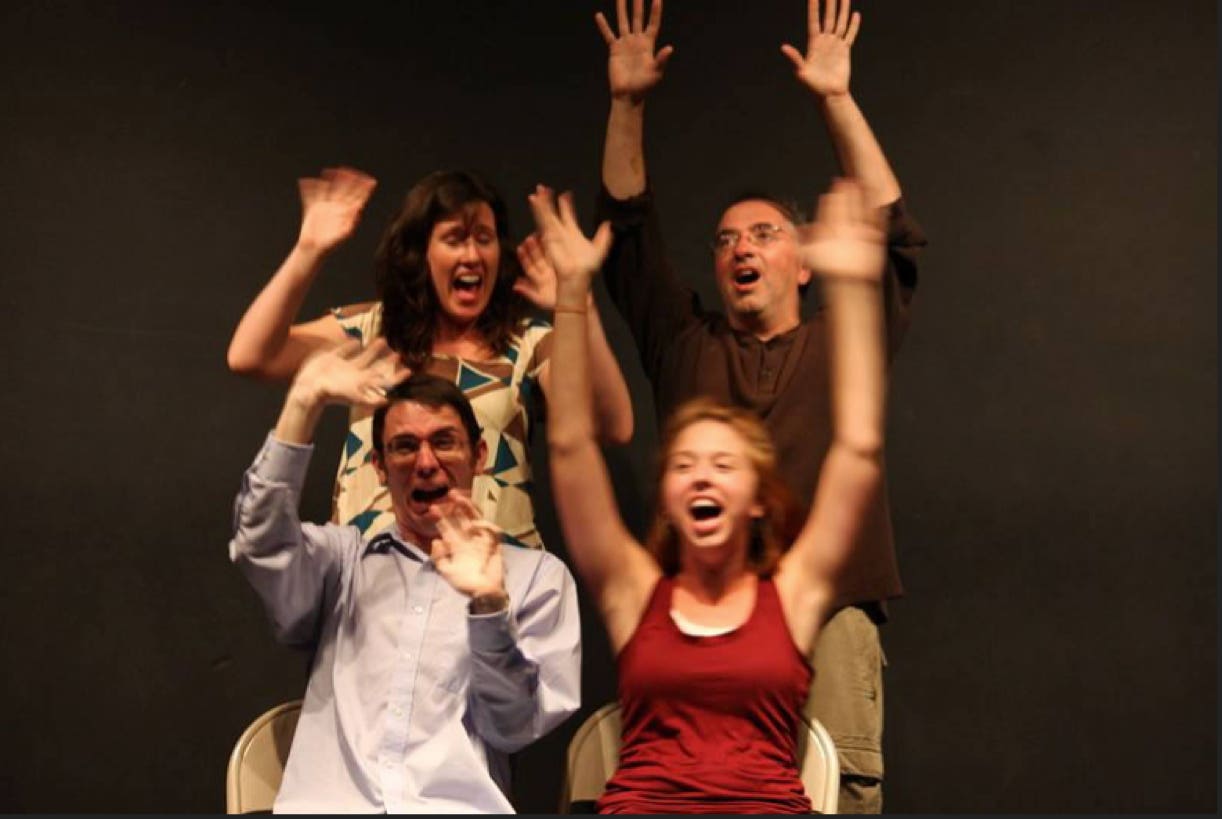What’s Talent and How Do I Get Some?

Pan Theater Awkward Show - 2009
article by Doug Kassel (Copyright, 2003)
I once had a student ask me if I thought he had enough “talent” to take my class.
I thought that was a strange question. I’d never considered “talent” a prerequisite to learning anything, especially something that is designed to bring out people’s so-called “hidden” talents. That started me thinking, “What is talent?”
Talent is perceived as some magical gift or ability that only a few “chosen” people have bestowed upon them while the rest of us are boring, unworthy and unimaginative.
Furthermore, talent is seen as some genetic predisposition, like being double-jointed or having a perfect pitch; you either have it or you don’t.
When I think about a person having talent, I think of them demonstrating the fullest expression of themselves; they have overcome whatever barriers might have inhibited them from that expression.
Some of us have more barriers to overcome than others such as fear, censorship, judgment, lack of self-confidence, awareness, fear of losing control, wanting to be “right” or “clever” and fear of looking silly.
The fear of looking silly has always interested me, especially working with actors, who by definition, want to attract attention and “live fully” in front of an audience.
Part of the thrill of acting is to communicate and let the audience live vicariously through the actor’s performance and yet some actors have a fear of looking silly. That certainly is one of the self-imposed barriers I see frequently in people during improv training.
Looking ridiculous in public seems to be something most people avoid at all costs.
However at the same time, we idolize and pay huge amounts of money to comedians and performers who are “extreme,” “outrageous,” “out there,” “over-the-top,” and “emotionally naked.” People like Jim Carey, John Belushi, Robin Williams and Jack Nicholson, for example, are famous precisely because they are willing to go where most people won’t and we love to live vicariously through them.
Improvisational training helps break down barriers to the expression of your creativity. I believe everyone is creative and that creativity already resides within us. Some people have easier access to it and others have to work at chipping away the barriers, but that creativity is in all of us.
I’ve learned never to predict people’s success in class. I’ve worked with people who seemed to have it all going in: outgoing, quick, funny, lots of stage presence. I’ve also worked with people who didn’t seem to “get it” right away and struggled with the process for a much longer time.
What I found was that once the person who was struggling “got it,” often their understanding was far deeper and their work far more rewarding than the rather limited glib “one-note” performance of the student for whom it seemed to come more easily. Everyone learns in his or her own way, and in their own time.
Part of improv training is about releasing yourself from judgment. Part of that self-judgment manifests itself in how soon the student “gets” it and how quickly he or she progresses. Players who judge themselves a lot will often shut down and give up. This is especially the case when they feel (right or wrong) that they are not getting a game or exercise.
People sometimes feel they have to do every exercise perfectly, as if there is a right way to do it. I often tell my students that just because an exercise appears to be simple it doesn’t mean it is easy. If everyone could do this easily, I wouldn’t have a job.
Sometimes tapping into your “talent” requires hard work and improvisation is a skill like any other. You are not responsible for skills you haven’t developed yet.
When players get down on themselves, I tell them, “Don’t judge or criticize what you did…diagnose. Look at the scene or exercise from a distance. Ask yourself what got in the way, so you don’t repeat it next time.” It is important to see your obstacles as just that rather than personal “failings.”
Once you are freed from the fear of failing, censoring and negative judgment, you will give your natural talent room to grow.
Doug Kassel, November, 2003. Note this article may NOT be reprinted without express permission of the author. To request permission please email pantheater with the article name and author’s name.